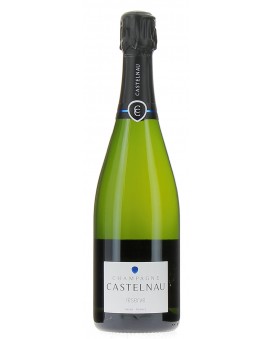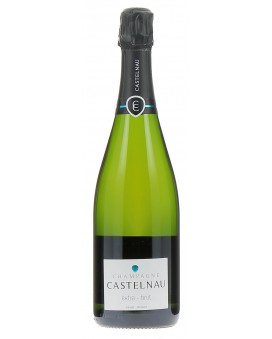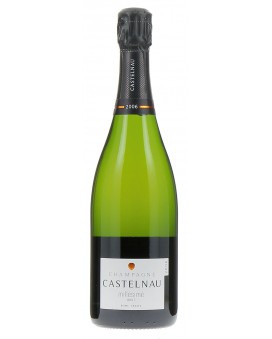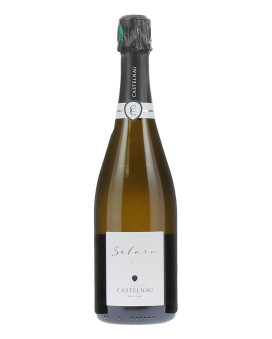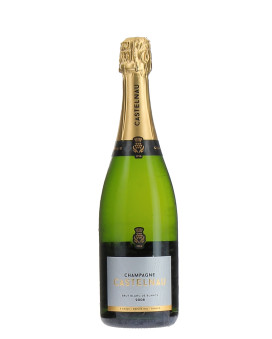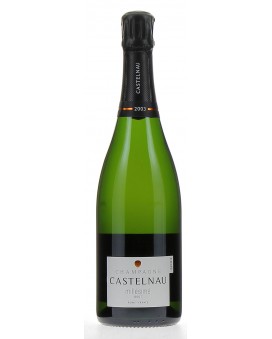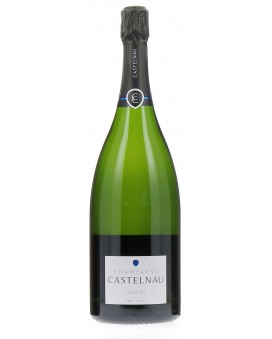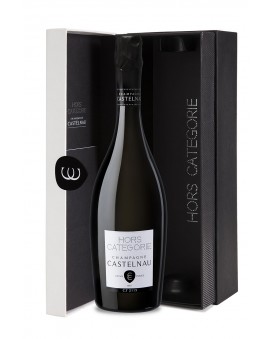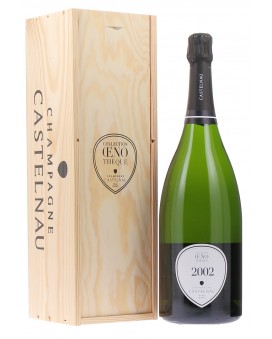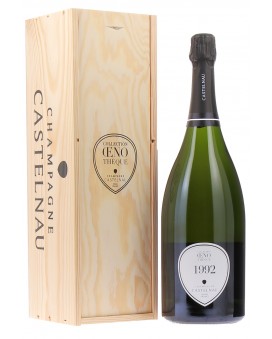- Abelé 1757
- Agrapart
- Alfred Gratien
- Apollonis
- AR Lenoble
- Armand de Brignac
- Ayala
- Barons de Rothschild
- Beaumont des Crayères
- Benoît Lahaye
- Bergeronneau Marion
- Besserat De Bellefon
- Billecart - Salmon
- Blin
- Bollinger
- Bruno Paillard
- Canard Duchene
- Castelnau
- Cattier
- Charles Collin
- Charles Heidsieck
- Chartogne-Taillet
- Chassenay d'Arce
- De Saint Gall
- De Sousa
- De Venoge
- Delamotte
- Demoiselle
- Deutz
- Devaux
- Diamant Vranken
- Dom Perignon
- Drappier
- Duval - Leroy
- Egly-Ouriet
- Epc
- Fleury
- Gosset
- Heidsieck & Co Monopole
- Henri Giraud
- Henriot
- Jacquart
- Jacquesson
- Jean-Noel Haton
- Joseph Perrier
- Konrat
- Krug
- Lafitte
- Laherte
- Lallier
- Lanson
- Larmandier-Bernier
- Laurent-Perrier
- Leclerc Briant
- Lombard
- Mailly Grand Cru
- Moet Et Chandon
- Montaudon
- Moussé Fils
- Mumm
- Napoleon
- Nicolas Feuillatte
- Pannier
- Paul Goerg
- Perrier Jouet
- Philipponnat
- Pierre Gimonnet
- Piper - Heidsieck
- Pol Roger
- Pommery
- Rare Champagne
- Louis Roederer
- Ruinart
- Salon
- Selosse
- Soutiran
- Taittinger
- Thienot
- Tsarine
- Veuve Clicquot
- Veuve Lanaud
Castelnau Champagne

The House of Champagne Castelnau has been making quality Champagne wines since 1916 in Reims. Today this house is part of the Regional Cooperative of Champagne Wines, owner of 149 vintages spread over no less than 900 hectares of vineyards in the best terroirs of Champagne.
This House is among the greatest vineyards and offers you different champagnes : Brut, Brut Réserve, Rosé, Vintage, Blanc de Blancs Vintage, and Cuvée Hors Catégorie, to discover in our store.
CASTELNAU Champagne
HISTORY
The Champagne house of Castelnau was founded in 1916 and named in honour of General Eduard de Curières de Castelnau. It swiftly made its reputation during the First World War. Champagne Castelnau’s house emblem (the thistles and the coat of arms carry the motto “qui s’y frotte s’y pique”…he who rubs will be pricked) allude to this historical reference.
For three generations since 1925, Champagne Castelnau belonged to a family from Epernay. By the 1930’s, Castelnau Champagne had become very fashionable and was to remain a favourite of royal families and the majority of the French army throughout the world for much of the 20th century. Meanwhile, in 1962, 12 growers decided to pool their knowledge, experience and resources to create a new cellar in Reims: la Co-opérative Régionale des Vins de Champagne which acquired Champagne Castelnau in 2003. Today the company draws its fruit from one of the largest vineyard bases in the Champagne region and has positioned the Champagne Castelnau label as its figurehead..
THE VINEYARDS
Champagne Castelnau vines cover nearly 900 hectares spread across 149 different Champagne Crus including many of the finest parcels of land in the region.
• The Montagne de Reims (département de la Marne): its hillsides are largely formed of deep chalk subsoil and are mainly planted with Pinot Noir.
• The Marne Valley (Marne, Aisne et Seine-et-Marne): the slopes are mainly clay/limestone with some marl and are usually planted with Pinot Meunier.
• The Côte des Blancs (Marne): here, only Chardonnay is planted on the ubiquitous outcrops of chalk that hold reserves of water and warmth to help ripen the fruit.
• The vineyards of the Aube, Bar-sur-Aube and Bar-sur-Seine (Aube and Haute-Marne): also known as the Côte des Bar, are mainly planted with Pinot Noir on mostly marl sub-soils.
This rich panoply of fruit styles and origins gives Champagne Castelnau a stunning opportunity to use all their native knowledge to create exceptional wines.
THE GRAPE VARIETIES
The diversity of grape types and parcels of land spread throughout the AOC region of Champagne’s different sub-districts is a major advantage for Castelnau’s winemaking teams.
• Pinot Noir
Pinot Noir is the main grape type from the cooler, chalky soils of the Montagne de Reims and from the Côtes des Bar. Pinot Noir based wines show red fruit aromas and a distinct ability to bring body and power to a blend.
• Pinot Meunier
The Pinot Meunier vine is a vigorous plant especially well suited to the more clay-based vineyards of the Marne valley, giving suppler, more rounded wines that mature more quickly, bringing the blends forward.
• Chardonnay
Chardonnay, the vine of choice for the Côte des Blancs growers as well as certain other specific villages, contributes lifted, delicate, floral, citrussy scents often along with mineral notes. Maturing more slowly, this is the ideal grape for wines destined for ageing.
WINEMAKING
In Champagne, the vintage usually begins in September. After a year of careful cultivation, the fruit is hand-harvested and pressed on site to conserve as much of its freshness as possible.
The grape juice, also known here as must, used to make the Castelnau Cuvées comes from 149 villages (or Crus) and 180 pressing stations sited all over the AOC Champagne region. When it arrives at the cellars in Reims, each batch of juice is tasted and analysed before being sent to the fermentation tanks. The yeasts transform the grape sugars into alcohol to make still wines. Each grape type from each different village Cru is vinified separately to keep its character intact for the chief winemaker and his team to taste and evaluate to build their blends.
Bringing out the individual characteristics of each ferment while ensuring that they will contribute to the typicity of the finished Castelnau blends: this is the potential offered by this vital stage of the process, allowing each parcel of land, grape type and vintage to create the same great marriage of flavour even though the proportions of each wine in a Cuvée may vary from year to year. Once the blends are made, the wines can be bottled and laid down in our cellars for several years to ferment and mature until they each develop their full richness and complexity of flavour.
Trusted Reviews
97% of satisfied customers Shipping 24H
Order before 11AM Gift Message
free + 1200 références
in stock Storage
Hydro-regulated Secure Payment
Credit Card, Amex, Paypal, Bank transfer 


